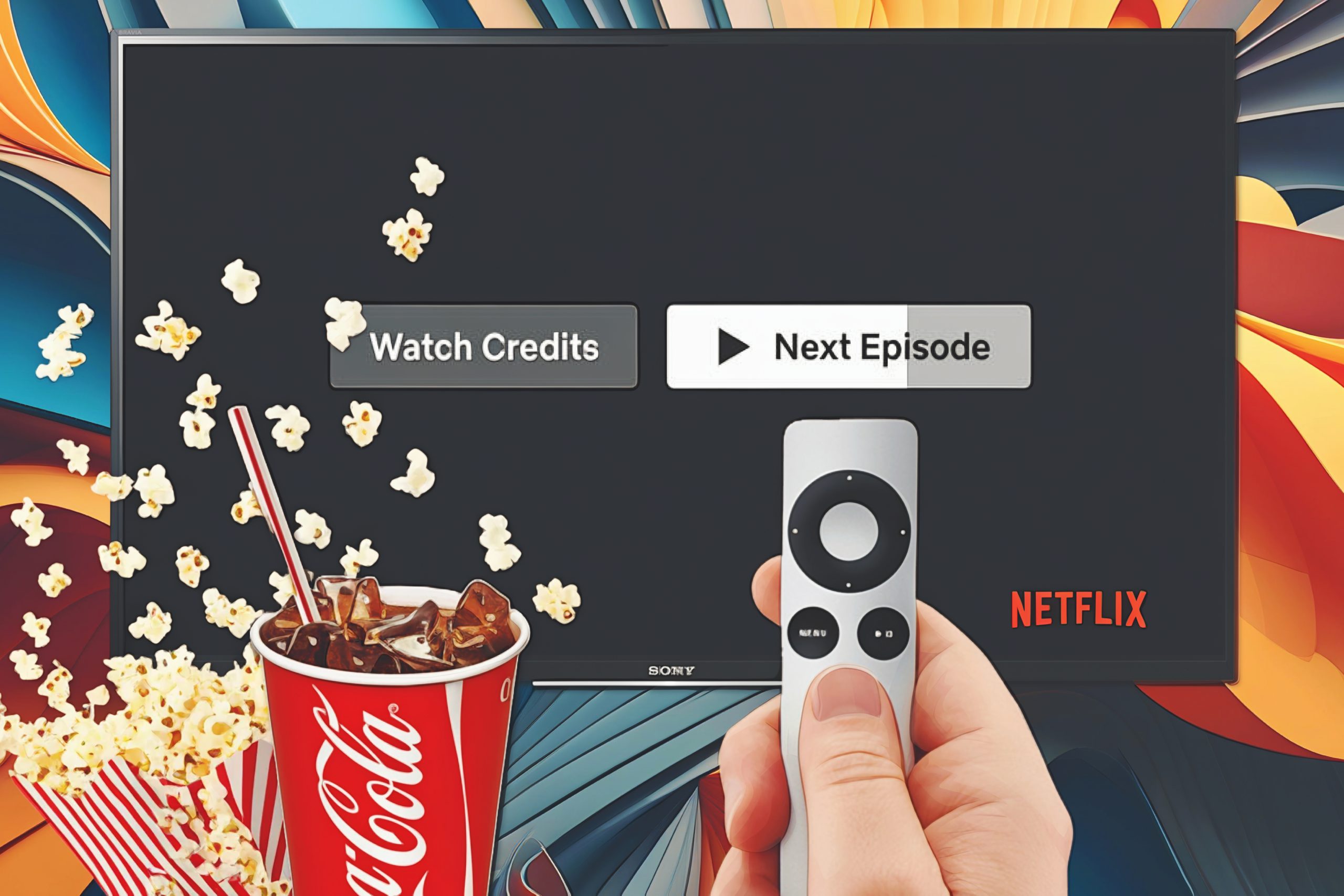It all starts off innocently enough. One episode of that hot new series everyone’s buzzing about. But in no time flat, the credits are rolling, and you’re four episodes deep, wondering where the last several hours went. Is this some sort of magic or a trap? Well, maybe. There’s some pretty solid psychology behind why we end up glued to the screen, binge-watching entire seasons in one sitting. So, grab yourself some popcorn and a soda, and let’s explore the phycology behind why you keep hitting “next episode.”
Of course it all starts with streaming giants like Netflix, Hulu, and HBO MAX and others. These savvy streaming bigwigs didn’t just stumble into the binge-watching phenomenon—the invented it. In fact, Netflix’s entire branding strategy is that they’re “anti TV.” They market themselves as the TV-alternative, because they offer endless, uninterrupted entertainment (Jenner 2014). And let’s be honest—millennials were all-in on this new way to watch TV. A Harris Interactive poll found that a whopping 67% of millennials (aged 18–36) were regular streamers by 2014, with nearly half reporting that streaming had become their go-to way to watch TV. The trend was clear: binge-watching had arrived, and nobody was clicking “next” on it.
But what actually qualifies as binge-watching? Is it three episodes? Four? A whole season in one weekend? That’s where things get a bit fuzzy. Definitions of “binging” vary, but a general rule of thumb suggests anything over four hours of the same show, back to back, qualifies as a “binge” session. So, if you’ve ever lost a whole Saturday to a gripping drama, congratulations—you’re part of the Binge club.
So, speaking of binging shows, what are the top five most binge-watched shows ever? According to an IMBD list from 2022 these are the winners:
- Game of Thrones
- Stranger Things
- The Walking Dead
- 13 Reasons Why
- The 100
But let’s be clear, your binge-watching obsession isn’t just about having all the latest tech or subscriptions; it’s actually about you. According to research, both technology and personal habits play key roles in how we watch the boob tube (Webster et al. 2000). Of course, owning the gadgets that make streaming seamless is part of it. Duh. But the other side of the coin is what’s happening inside our brains. The truth is, binge-watching taps into some personal and psychological areas of our brains that make it really, really hard to stop once you’ve started. Think of it like a perfect storm of convenience, suspense, and—let’s face it—a hearty dash of old fashioned indulgence.
Psychologists have taken a deep dive into how we form habits around our media consumption. A study by LaRose (2010) suggests that binge-watching starts with one very clear goal—maybe you’re trying to catch up before a new season drops or your bored and need something to do on a rainy day. But once you get into the groove, the binge behavior can turn into a habit, something that happens without you even realizing it. The next thing you know, that burning urge to binge is triggered the moment you hit “play” on a new series.
And the streaming giants know all of this, heck, they know your brain better than you do.
It turns out that the reasons for binge-watching are as varied and unique as the actual shows. Some of us binge for entertainment, others for relaxation, and some because—well, let’s be real—there’s just nothing else to do. The kicker is that “engagement” is the key motivator here. What do I mean by that? Well, it’s that edge-of-your-seat feeling when you absolutely must know what happens next. That’s what keeps us watching. In fact, Pittman and Sheehan (2015) found that “engagement” was the single biggest predictor of binge-watching behavior. Turns out, all we really want is to be wowed, shocked, and completely swept away by an epic story.
But truthfully, it’s not all about suspense. Sometimes, we binge-watch for the comfort of it. Think of it as TV’s answer to comfort food—easy, enjoyable, and oh-so-satisfying. It’s an escape from reality, a way to flee into another world without leaving your cozy couch.
But, like most indulgences, binge-watching has a downside. While it might start as a lazy-day habit—one you feel in control of—it can quickly morph into something way less productive. LaRose et al. (2003) noted that a lack of self-regulation often leads to longer, more intense binge sessions. Imagine back to a time when you were stuck in a binge cycle, and you knew you should stop but you couldn’t. If that’s you, don’t worry, you’re not alone. This is actually how all indulgent troubles begin. What starts off as a harmless distraction can slowly morph into something that disrupts daily routines and productivity. Next thing you know, you’re blending into your couch cushions, and wearing 12-day-old crunchy jammies.
Even worse? You could end up a total recluse. Back in the good ol’ days—the ’50s and ’60s—TV was a family affair. The living room was the spot where everyone gathered at the end of the day to watch their favorite show together. Now? Our “TV time” has gone totally solo. We’re streaming on our phones, iPads, and laptops, tucked away in our own private corners, far from family, friends, and that once-communal living room, where the stationary TV stood like a dusty symbol of togetherness.
But hey, don’t panic just yet—it’s probably not time to cancel all your streaming subscriptions and torch your smart devices. The trick is all about finding that sweet spot of balance.
Binge-watching can be a great way to unwind, catch up on favorite shows, and even bond with others over a great series. I mean, we’ve all had those chats that start with, “Are you caught up on…?” But as with most things, too much of a good thing can lead to burnout—or worse, the realization that you’ve just spent 16 hours on the couch when you only meant to watch one episode. Stay mindful of your habits, and don’t be afraid to press pause every now and then.
So next time you find yourself four hours deep into a series, remember: you’re not alone, and there’s a whole world of psychology behind why you had to hit “next episode.”
Till next time, be wickedly wonderful.







I’ve never been a binge watcher. I dont like a movie to be over two hours, why would I want to watch a show for several hours? We might watch a show and complete it over several days watching 2 or 3 episodes at a time but I have never sat down and fully binge watched anything in my life. I cant imagine literally having nothing to do otherwise…where do I get that cushy life? TV all day? Not even when I’m sick or recovering from a medical procedure.
Well, if it’s Bosch, it’s because the show is so good, you don’t want to put it down. DUH
First you have to find a program that’s interesting enough to want to watch another episode. I do not watch more that the first 15 minutes on most stream crap.
I binge because it’s hard to keep the characters and story line straight after one week. GoT is a good example. Most of the characters looked alike. Dirty, filthy, grubby with strange names. Plus, after one week you forget the subtleties of the story line.
A little discipline goes a long way to enjoying favored shows for a longer period of time. I have no trouble watching one episode at a time. What helps is having many other things to attend to and using TV as a reward.
We’re hitting the next episode button because NO ONE want to watch the garbage they have on Television today. DUH.